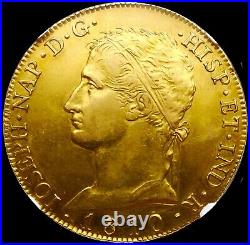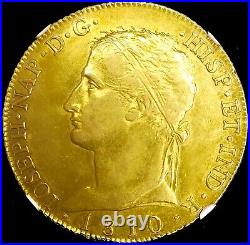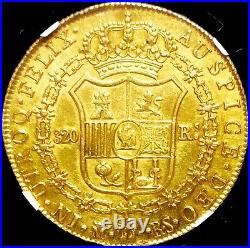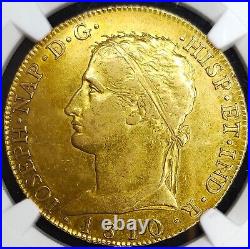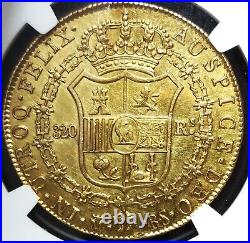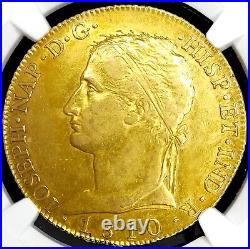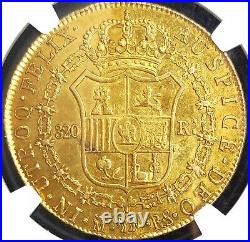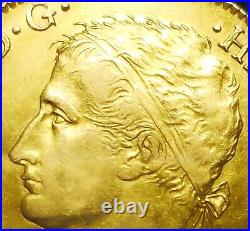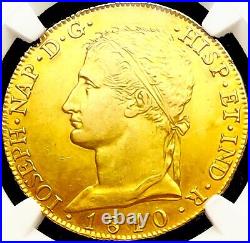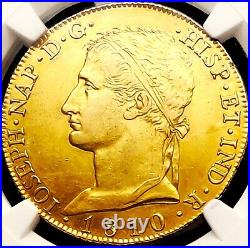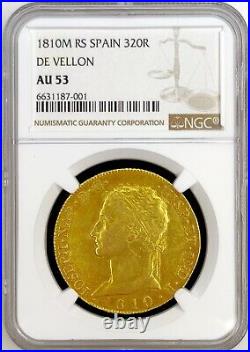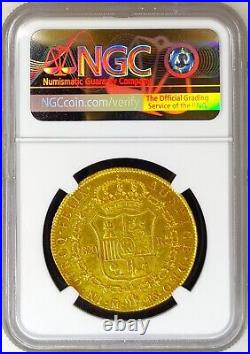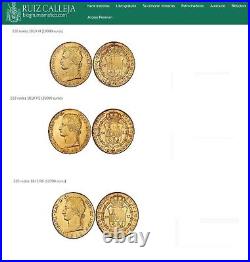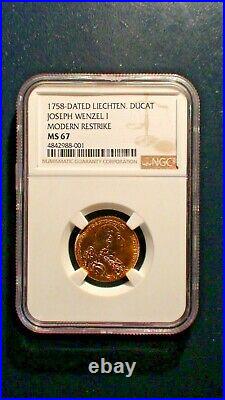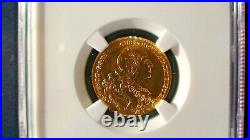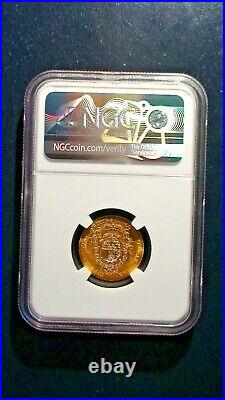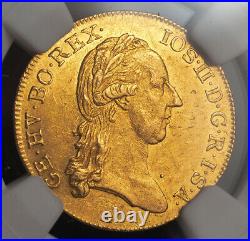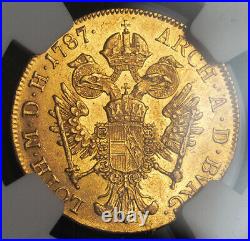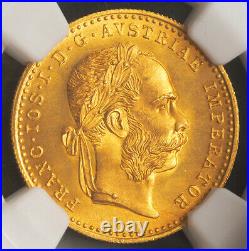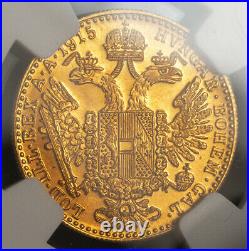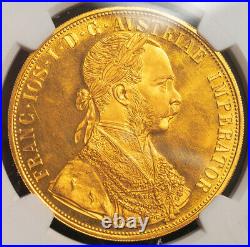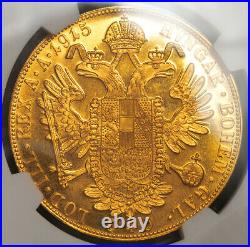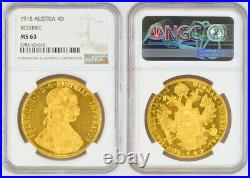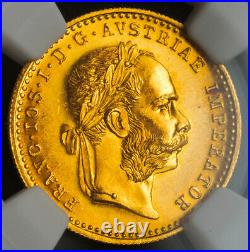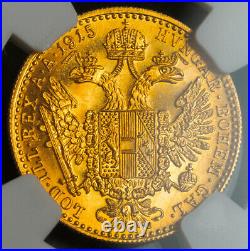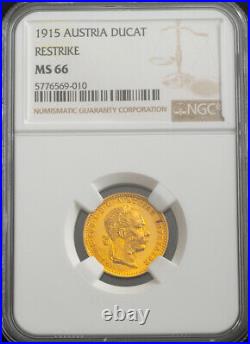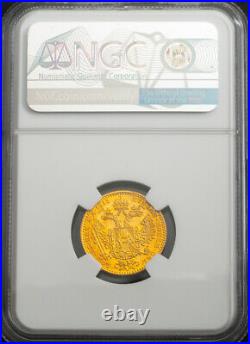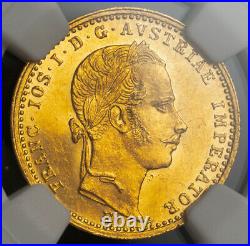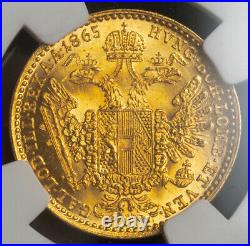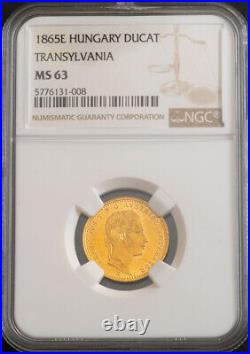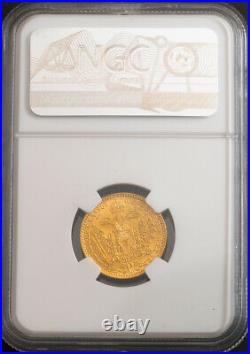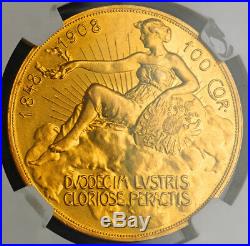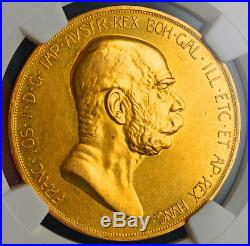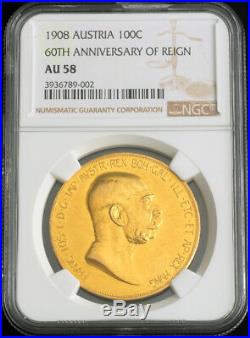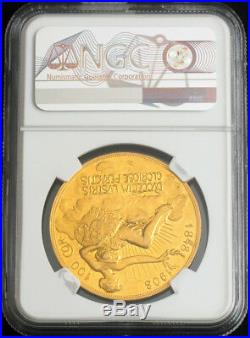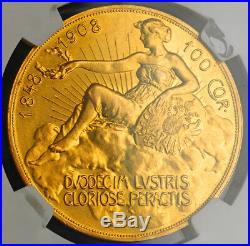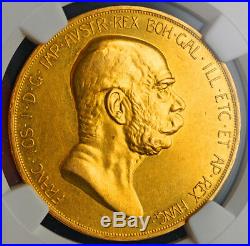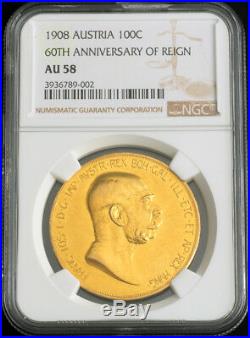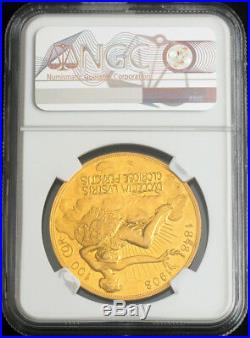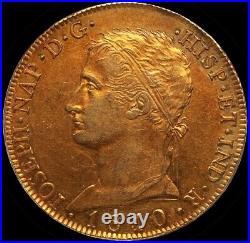
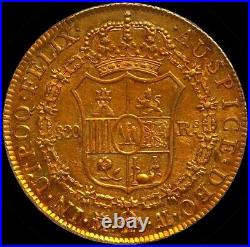
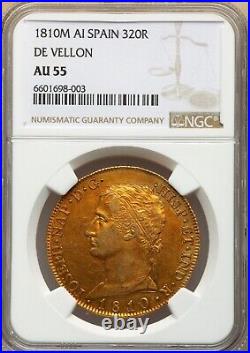
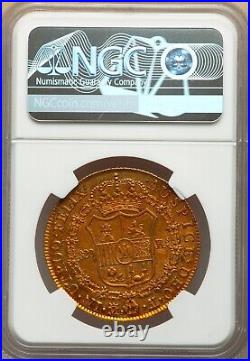

SPAIN 1810 M AI? 320 REALES DE VELLON GOLD? NGC AU – 55? EXTREAMLY RARE MADRID MINT. SISTER COIN OF A 2 YEAR TYPE WITH 2 ASSEYER VARIENTE (RS) (AI). Was the older brother of NAPOLEON BONAPARTE. Madrid mint, KM545, Fr-300, Cal-54, Onza-1188 (Extremely Rare). Type with initials “AI” for assayers Isidoro Ramos del Manzano and Antonio Rafael Narvaez. Among Joseph Napoleon’s rarest issues within his “De Vellon” coinage featuring the scarcer of two assayer combinations, whose borderline Mint State preservation is only surpassed by its appreciable mulberry-tinged honeyed golden patina and residual flash. Gentle, uniform wear precludes the current specimen from finer technical designations, but as it stands, remains a hotly. WE OFFER THIS MAGNIFICENT COIN AT A VERY REASONABLE PRICE. Type Standard circulation coin. R: Antonio Rafael Narvaez. Engraver: Mariano Gonzalez de Sepulveda. Colaboration with Frenchmen: Augustin Dupre. WE ARE OFFERING THIS SUBLIME SPANISH GOLD COIN AT A GREAT PRICE. FOR THE ADVANCED COLLECTOR´S & THE MOST DEMANDING NUMISMATISTS. Numista Rarity index: 96 /100. We Accept Offers & in some cases Negociate prices. We Respond to all inquiries within 24 hours, normally in about 2-3 hours. We personally select all our items & try to offer you Premium Quality. All items are packaged securely to insure a safe journey to you. We really appreciate your comments & feedback after you receive your items and will do the same to you. This item is in the category “Coins & Paper Money\Coins: World\Gold”. The seller is “mannycoinsstampsbanknotes” and is located in this country: US. This item can be shipped to United States.
- Denomination: 320 Reales
- Circulated/Uncirculated: Circulated
- Composition: Gold
- Year: 1810
- Fineness: 0.875
- Grade: AU 55
- KM Number: 545
- Country/Region of Manufacture: Spain
- Certification: NGC


